- Home
- JoAnn Ross
Castaway Cove (2013) Page 4
Castaway Cove (2013) Read online
Page 4
“We both do our share of charity work.” She’d frowned and begun to attack the circles beneath her eyes with concealer. “Like you said, much of it for the military. Surely that should count for something.”
“Maybe it should. Hell, sure it does. And I can understand why you’d be worried, but it’s not as if I’m going to be out there patrolling dangerous streets or flying helicopters. I’m going to be doing the same thing I’m doing here. In a nice, safe, well-protected studio on a military base surrounded by armed guards.”
“I work on a morning news show,” she had pointed out. “Just because I’m an entertainment reporter doesn’t mean I don’t listen to what’s reported during the hard news segment. Troops do die on military bases.”
“I won’t get killed.”
“I’m sure that’s what your birth father said when he climbed into that cockpit before his plane crashed.”
“I guess you had to have been there when I was talking with the guy.”
After shouting at him that she didn’t have to have been there to understand, she had thrown down her foundation brush.
“I’m not kidding, Mackenzie. You wouldn’t be the first person to fall for a slick recruiting spiel. And you damn well won’t be the last. But if you go through with this, I’m out of here.”
She stormed out of the bathroom. While he was in the shower, he heard the front door slam.
And by the time he returned home from the recruiter’s office, where he’d gone after his morning shift, his wife was gone. Two days later, having cooled down, she was back.
Mac quickly came to realize that military life, especially with all the multiple deployments during two wars, was not conducive to marriage. In fact, whenever a call came in asking for a breakup song, he found himself waiting for his own “Dear Mac” letter.
The first time he informed her, over a crackling phone line from Iraq, that he’d decided to reenlist, she’d threatened divorce. Certain that his marriage was finally over, Mac had been surprised that, even as he hated the idea of failing, he was mostly okay with that.
Until, two months after he’d returned from a two-week leave, she e-mailed him with the news that she was pregnant.
Prepared for a battle to convince her to keep their child, he had been both surprised and relieved when she’d told him that abortion wasn’t a personal option. Since her unwillingness to be a single mother apparently proved even stronger than her dislike of being a military wife, their rocky, roller-coaster marriage stumbled jerkily along.
There’d been times over the years when Mac had thought the only reason they’d managed to stay together was because he spent so much time deployed. It was when they were together that old wounds reopened, allowing long-seething anger to explode.
Apparently, he thought, as he lifted the bottle to measure the amount of Scotch left, this time the wound had been fatal. As he refilled the glass, Toby Keith was proclaiming to be not as good as he once was.
And couldn’t Mac identify with that?
His cell phone rang. Digging into the pocket of his jeans, he pulled it out and struggled to focus on the illuminated caller ID.
“Hey, Dad.” Although his father couldn’t see him, he sat up straighter and set the glass down on the side table. “What’s up?”
“Kayla called me earlier.”
“My wife?”
“That would be her. Unless you’ve gotten another one you failed to mention,” Dr. Boyd Buchanan said dryly. “She suggested I call you.” He paused, as if to allow Mac the chance to fill him in on what had happened.
“She left.”
“Ah.” The man who’d become even closer to him than his own birth father, whom he could barely remember, the man he’d called Dad since his teens, didn’t seem all that surprised. “Well, that was certainly a possibility, wasn’t it?” They’d discussed the situation while Mac had been a patient at Travis.
“True.” Mac raked his fingers through his surgically butchered hair, then said, “She left Emma behind.”
Silence. The only sound was the tick tick tick of the wall clock coming from the kitchen.
Then, finally, “With you?”
There was some hesitation in his dad’s voice. As if he didn’t think Mac could take care of his own daughter?
“Yeah. So, the good news is that although she said her lawyer will be contacting me about visitation rights, it appears she’s giving me custody.”
The breakup of his marriage, which Mac took responsibility for, was proof that he hadn’t been the best husband. And, although it hurt like hell to admit it, he hadn’t been a good father, either.
Nothing like his dad, who’d somehow managed to juggle a high-pressure career with marriage and fatherhood. He’d always found time to check homework, ask about Mac’s day, and sneak in some fishing on weekends.
“The bad news is that I’ve no freaking idea what to do next,” Mac admitted.
Showing the rapid, confident decision-making skills that had always served him extraordinarily well in the operating room, his father didn’t hesitate. “Why don’t you come to Oregon?”
Mac’s mother had died suddenly two years earlier. Her warm and generous heart had simply stopped one day while she was out weeding her beloved garden, and nothing his famed physician father, the paramedics, or the doctors in the emergency room could do had been able to get it going again.
Professing that he needed a change to shake him out of his widowed depression and apathy, Dr. Buchanan had resigned his medical practice and teaching position and moved back home to the small coastal town where he’d grown up, to live with his father.
“Actually, that doesn’t sound like such a bad idea,” Mac admitted.
He might be a grown man, far different from the self-centered college dropout who’d left Oregon to seek fame and fortune, but right now, the child he hadn’t even realized was still lurking inside him wanted his dad to make things better.
“But what about Pops? Are you sure he’ll be okay with a five-year-old girl living in the house with him?”
This time the pause was long enough that Mac wondered if his cell had dropped the call.
“Dad? Are you still there?”
“Yes.” His father sighed. “Actually, there’s something I’ve been meaning to tell you. About your grandfather.”
“Okay.” Mac didn’t like the sound of that.
“I had to move him to a memory care facility.”
“What?” Could this frigging day get any worse? “Are you talking about a nursing home?”
“It’s a residence facility. But it’s not like it sounds.”
“Shit.” Mac reached for the glass again and tossed back the rest of the Scotch. After his mother had married Boyd Buchanan, Mac had begun spending several weeks each summer in Shelter Bay and his grandfather Maguire had always been the toughest guy he’d ever known. And one of the wisest.
One memorable year, over Thanksgiving dinner, while riding high on the heady self-importance of being an OSU freshman, Mac had asked the older man, a fourth-generation Oregon fisherman, if he regretted not having been able to attend college, which would have allowed him to do something other than fishing.
“Why would I want to give up fishing?” Charlie Maguire had asked. “If you love what you’re doing, boy, you’ll never work a damn day in your life.”
And hadn’t Mac thought the same thing about his own work?
“What the hell happened? Last time we talked you told me that he was doing fine.” His grandfather had been diagnosed with Alzheimer’s disease two years earlier, but whenever Mac had spoken with his father he’d never picked up on a problem.
“I said his condition was being managed,” his father said, correcting him. “As well as could be expected. If you remember, I told you when he was first diagnosed that it’s not like even five years ago, when Alzheimer’s was a sure death sentence. With all the new advances being made, it’s quite likely that your grandfather will eventually die with
Alzheimer’s, not because of it.”
Mac didn’t even want to think about his grandfather, who’d been the solid, unmoving rock of their family, dying. “Then with all that positivity, why the hell is he in a nursing home?”
“Memory care residence,” his father qualified. “There’s a huge difference. And he’s there because he kept wandering off. With the house located right across the street from the harbor, that put him at even more of a risk. He also left a gas burner on. Twice. Once in the middle of the night.”
Okay. Those were definitely dangerous behaviors.
“Plus, although he’s still engaged and can still carry on a conversation, he’s easily confused. There are times he thinks I’m his doctor.”
“Not surprising. Since you are a doctor.”
“True. But his is thirty years younger.”
“You’ve always looked young for your age,” Mac said, still trying to wrap his mind around the idea of his grandfather losing his mind.
“Dr. Parrish is also a woman.”
Damn. Another sign that the older man’s symptoms had gotten worse. “Why the hell didn’t you tell me?”
“I was going to tell you,” his father continued. “But then you had the bad luck to get blown up and I figured you were dealing with enough without having to worry about your grandfather. Who is, I assure you, being very well taken care of. . . .”
Mac heard another long sigh and realized that this wasn’t the least bit easy for his father. Putting himself in his dad’s place, Mac knew the situation would be tearing him apart.
“He’s happy there, Mac. He’s in a bright and cheery home staffed with dedicated professionals who practice a gentle care philosophy dealing with varying stages of dementia. It’s nothing like warehousing, locking people up to stay lost in their thoughts. Everyone has taken time to get to know him, his life experiences, even his sleeping routine, to work out a schedule of activities that are keeping him active but still allow enough rest for him to recharge.
“When he was still living in the house, I put one of those tracking bracelets on him, which he said made him feel as if he were under house arrest. All the daily, minute-by-minute decisions that were confusing him and making him anxious are now being taken care of at Still Waters, which relieves a lot of stress. Not just on me, but on him, too.
“And most of the time, when I visit, he sees me as his son. Not as the mean doctor who was always telling him what to do. Or as his jailer who was trying to keep him locked up. Which was only so he couldn’t drown himself or get run over walking down the middle of Harborview in the middle of the night.”
“Hell, I had no idea it had gotten so bad.”
“That was the point. I didn’t want to throw more problems on your plate.”
Mac’s father was a kind and generous man of sterling character. Despite his successes in so many areas, he’d always considered family the most important thing in his life. If Dr. Boyd Buchanan believed this was the best thing for his father, Mac wasn’t about to second-guess him.
“I’d like to be able to be with him,” Mac said. “Have Emma meet him.” Before it’s too late. He didn’t say the words aloud, but knew his father heard them.
“That pretty little girl would bring a smile to his face and sunshine into his heart,” Boyd agreed. “And there’s nothing I’d love more than spending time with my incredible granddaughter. Especially with the holidays coming up.”
It wasn’t as if Mac had anywhere else to go. And his father, who knew a lot more about parenting than Mac did, could help during this rocky transition.
“I’ll book the flights in the morning,” he said. “And, Dad—thanks.”
“I’m the one who should thank you. Your grandfather built this house with his own hands when he and your grandmother got engaged, then added on to it as each of his four kids were born. With my brothers busy with their own families around the country, I’m left here rattling around all alone in all these empty rooms. I’d be grateful for the company.”
With at least one thing in his life settled, Mac said good night, turned off the radio, and went upstairs to the bedroom, stopping to check in on his daughter.
Emma was lying on her side, clutching a spotted Dalmatian toy. Since it had been dark when he’d put her to bed, he’d forgotten to close the curtains. In the silvery moonlight streaming through the window, she looked so small. So innocent. So vulnerable.
Which had Mac feeling as helpless as he’d felt when that truck bomb had sent him flying through the air.
She’d kicked off her covers. When he bent to pull the Barbie-pink blanket up, he brushed a kiss on her cheek. She murmured something in her sleep, then rolled over onto her back, taking the stuffed animal with her. But she didn’t wake up.
Not wanting to smell his wife on the sheets of the bed in the master bedroom, Mac found a small guest room across the hall. After kicking off his boots, he fell facedown onto the too-soft bed.
His last thought, before he crashed into sleep, was that at least things had to go uphill from here. Because they damn well couldn’t get any worse.
7
Shelter Bay, Oregon
Eight months later
Located on one of the hills overlooking Shelter Bay, Still Waters didn’t look like your typical nursing home. Because, Annie Shepherd thought as she walked toward the building brightened by hand-painted murals of the Oregon coastal town, it wasn’t. Instead, it was a thoughtfully designed residential home created especially to keep diminishing minds active, while at the same time quieting them. Thus the name.
When Sedona Sullivan, who led the monthly cookie-decorating group at Still Waters, had first suggested she volunteer here, Annie had been hesitant. What did she know about Alzheimer’s? Other than that it was a horrible disease.
But then when she’d brought Sedona’s suggestion up at Adèle Douchett’s knitting circle, the elderly woman, who’d suffered her own form of dementia after a head injury, had been encouraging.
“Don’t think of them as Alzheimer’s patients, dear,” she’d said as her needles rapidly click-clacked away, creating yet another blanket for Project Linus, a children’s charity the knitting circle contributed to. “Think of them as individuals with years of life experience to share.”
As Adèle herself continued to do. While the older woman’s memory might not be as sharp as it once was, she remained a powerful force. “I started a knitting group at Still Waters while having cognitive therapy there, and I know you’ll fit right in,” she assured Annie. “And, as it happens, a widower I became friends with during my group therapy sessions moved in last fall. I’m sure you’d find his stories entertaining, and that you’ll brighten his day like a ray of sunshine.”
While Annie wasn’t sure about the sunshine part, though she did her best to remain unrelentingly upbeat—even on the days when she secretly wanted to weep—Adèle had been right about the elderly residents having so much to share. Perhaps because she’d grown up without any family of her own, Annie had, over the past months, begun to think of many of them as the grandparents and great-grandparents she’d never had.
After being buzzed in by the doorman—the building was kept locked to prevent residents from wandering away, which was one of the reasons people came to live here—she paused to pet the huge cat lying in a sunbeam atop the reception desk.
Still Waters embraced the growing belief among caregivers that people were less depressed and lonely if they lived with animal companions. Which especially made sense when you considered how many residents had been forced to leave their own pets behind.
Since Turtle, named for his tortoiseshell markings, had arrived, two other cats and a golden retriever (appropriately named Goldie), all rescues from Dr. Charity Tiernan’s shelter, had joined the residents of the memory care home.
Annie paused to chat with two women who were sitting in the brightly lit library and enjoying the view of the colorful garden out the tall windows, then skirted around Goldie to
walk down a cheerfully painted hallway, stopping outside the room of a resident she’d become especially close to. The widower friend of Adèle’s.
After retrieving family photos from his son, together she and Charlie Buchanan had created the burlap-covered bulletin board posted in the hallway next to his door. At the top were his name and date of birth. Below that was a sepia photo of an outrageously handsome young man wearing the classic sailor uniform of white shirt, bell-bottom trousers, and “Dixie cup” hat. Tacked in one corner was a black-and-white snapshot taken aboard a ship. This time he was wearing a blue chambray work shirt and denim pants.
Below those was a wedding photo. The bride was dressed in a lovely white gown, while the groom looked proud, though a bit dazed, in that same Navy uniform.
“Good afternoon, Charlie.” She greeted him with a smile as she entered the room brightened by crayoned drawings she knew had been done by his great-granddaughter. They were taped to the buttery yellow walls. He was sitting in a chair by the window, looking out at the courtyard garden, where a profusion of red, yellow, and white tulips brightened the misty Oregon day. He was wearing a cardigan sweater that matched his faded blue eyes over a gray T-shirt, a pair of khakis, and sneakers. “How are you?”
Having apparently been taught by his mother to always stand up when a woman entered the room, Charlie managed to push himself to his feet as he always did, using a combination of arm pressure and momentum, even though she’d insisted it wasn’t necessary.
His brow furrowed for a moment as he tried to place her. While Charlie’s long-term memory was as sharp as a tack, his short-term memory was decidedly less so. Which was one of the things she’d been working on with him.
“I’m Annie,” she said gently. “Annie Shepherd.”

 Magnolia Moon
Magnolia Moon Summer on Mirror Lake
Summer on Mirror Lake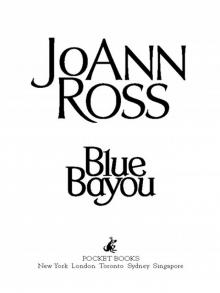 Blue Bayou
Blue Bayou Champagne and Moonlight
Champagne and Moonlight No Regrets
No Regrets Long Road Home
Long Road Home Southern Comforts
Southern Comforts Herons Landing
Herons Landing Untamed
Untamed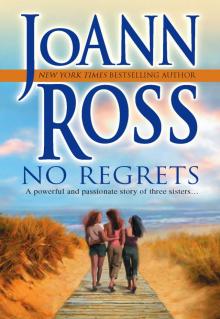 No Regrets (Mira Romance)
No Regrets (Mira Romance) Dark Desires
Dark Desires Wanted!
Wanted! River Road
River Road Midnight Runaway
Midnight Runaway The Long Way Back
The Long Way Back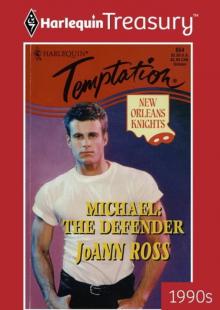 Michael: The Defender
Michael: The Defender Hot on the Trail
Hot on the Trail When I'm With You
When I'm With You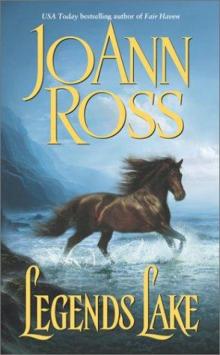 Legends Lake
Legends Lake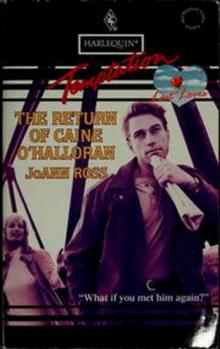 The Return of Caine O'Halloran
The Return of Caine O'Halloran Dance with a Dynasty
Dance with a Dynasty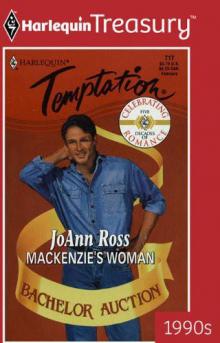 MacKenzie's Woman
MacKenzie's Woman Impulse
Impulse Sunset Point: A Shelter Bay Novel
Sunset Point: A Shelter Bay Novel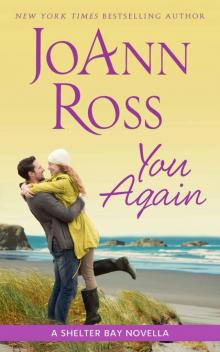 You Again: A Shelter Bay novella (Shelter Bay series Book 8)
You Again: A Shelter Bay novella (Shelter Bay series Book 8)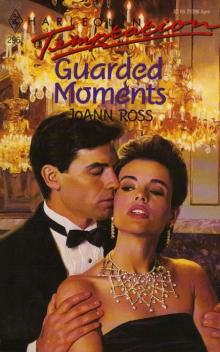 Guarded Moments
Guarded Moments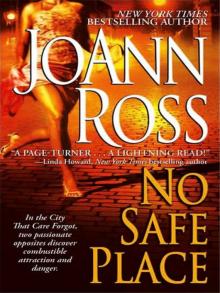 No Safe Place
No Safe Place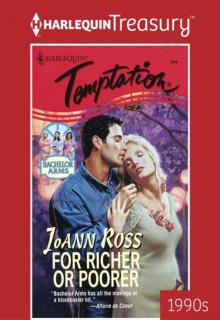 For Richer or Poorer
For Richer or Poorer Private Passions
Private Passions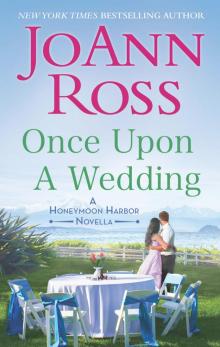 Once Upon a Wedding
Once Upon a Wedding Snowfall on Lighthouse Lane
Snowfall on Lighthouse Lane Christmas on Main Street
Christmas on Main Street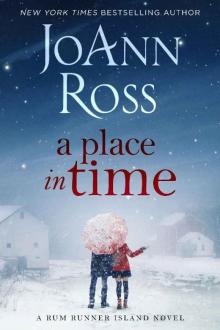 A Place in Time (Rum Runner Island Book 1)
A Place in Time (Rum Runner Island Book 1)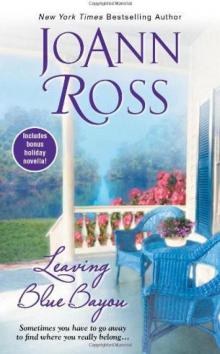 Leaving Blue Bayou
Leaving Blue Bayou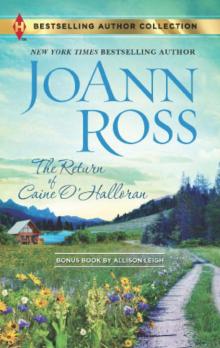 The Return of Caine O'Halloran: Hard Choices
The Return of Caine O'Halloran: Hard Choices Lucky in Love
Lucky in Love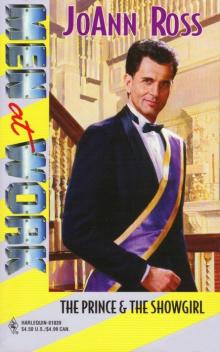 The Prince & The Showgirl
The Prince & The Showgirl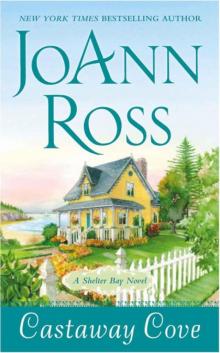 Castaway Cove
Castaway Cove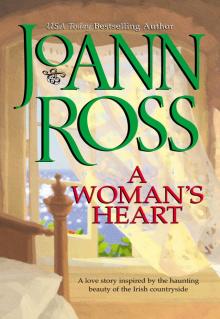 A Woman's Heart
A Woman's Heart One Summer
One Summer Ambushed
Ambushed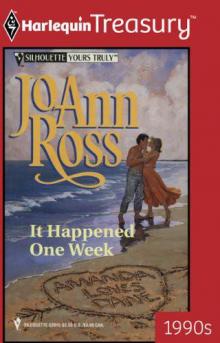 It Happened One Week
It Happened One Week Home by the Sea
Home by the Sea Three Grooms and a Wedding
Three Grooms and a Wedding Hunk of the Month
Hunk of the Month Never a Bride
Never a Bride Sun Kissed
Sun Kissed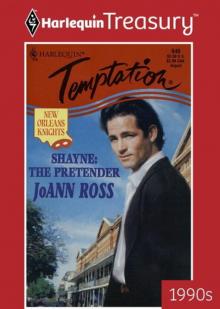 Shayne: The Pretender
Shayne: The Pretender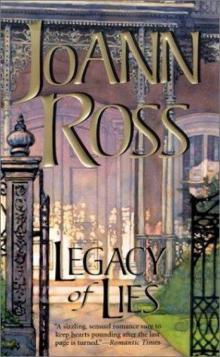 Legacy of Lies
Legacy of Lies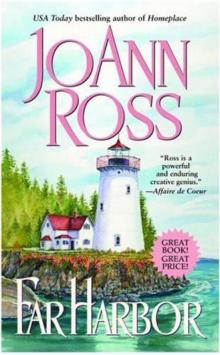 Far Harbor
Far Harbor Finn
Finn Roarke: The Adventurer
Roarke: The Adventurer I Do, I Do...For Now (Harlequin Love and Laugher)
I Do, I Do...For Now (Harlequin Love and Laugher) Briarwood Cottage
Briarwood Cottage On Lavender Lane
On Lavender Lane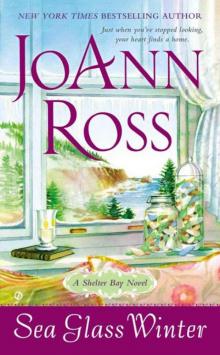 Sea Glass Winter
Sea Glass Winter River's Bend
River's Bend Christmas in Shelter Bay
Christmas in Shelter Bay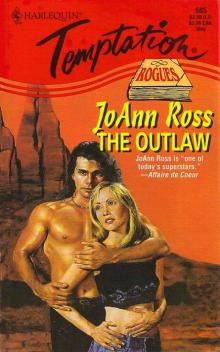 The Outlaw
The Outlaw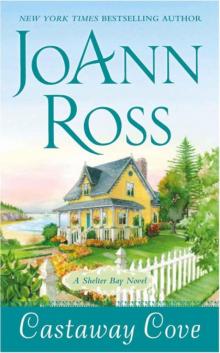 Castaway Cove (2013)
Castaway Cove (2013) Confessions
Confessions Moonshell Beach: A Shelter Bay Novel
Moonshell Beach: A Shelter Bay Novel